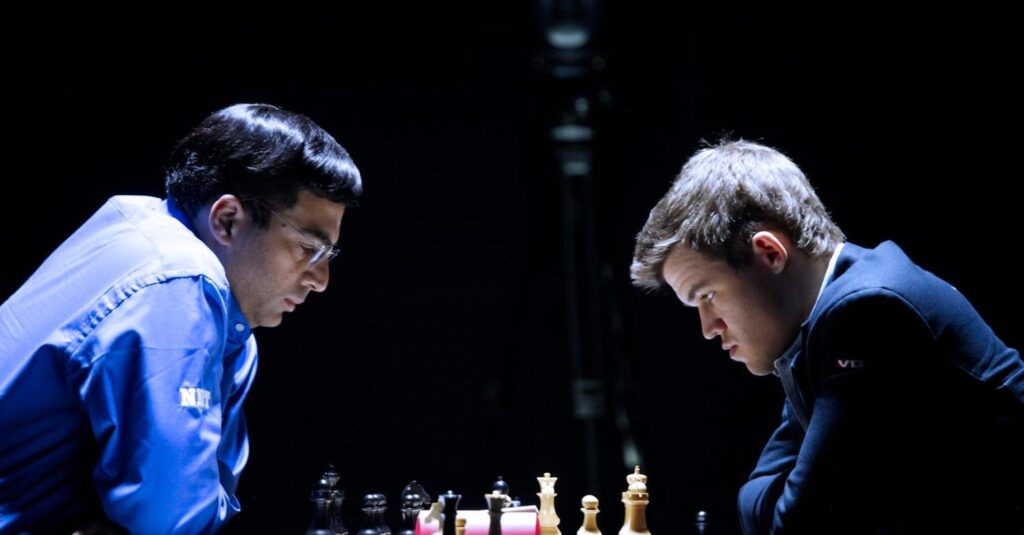Are you curious to know what is a blunder in chess? You have come to the right place as I am going to tell you everything about a blunder in chess in a very simple explanation. Without further discussion let’s begin to know what is a blunder in chess?
Chess, an ancient game of strategy and intellect, has captivated minds for centuries with its intricate maneuvers and strategic depth. Within this realm of precise calculations and tactical brilliance, there exists a critical aspect that can turn the tide of a game in an instant: the blunder. Join us as we delve into the world of chess and explore the nuances of blunders, those pivotal moments that can alter the course of a game and leave players reeling from their missteps.
What Is A Blunder In Chess?
In the lexicon of chess, a blunder is a critical mistake or an oversight that leads to a significant disadvantage or loss for the player committing it. These missteps can range from a miscalculated move that allows the opponent to capture a valuable piece to a strategic error that weakens the player’s position on the board.
Blunders often result from lapses in concentration, miscalculations, overconfidence, or misjudgment of the opponent’s intentions. Even the most seasoned players can succumb to blunders, highlighting the challenging and unpredictable nature of the game.
Types Of Blunders:
Blunders in chess can manifest in various forms, each with its own impact on the game:
- Tactical blunders: These occur when a player overlooks a threat or fails to anticipate an opponent’s tactical maneuver, leading to a sudden loss of material or position.
- Strategic blunders: These involve errors in long-term planning or positional understanding, such as making a move that weakens the player’s position without immediate tactical repercussions but has detrimental effects in the later stages of the game.
- Time trouble blunders: In faster-paced games or under time constraints, players may make blunders due to the pressure of the clock, leading to hurried, suboptimal moves.
The Psychological Impact:
Beyond its immediate consequences on the game, a blunder can have a profound psychological effect on the player committing it. It can shatter confidence, disrupt focus, and introduce doubt into the player’s decision-making process. Overcoming the aftermath of a blunder often requires mental resilience and the ability to refocus amidst adversity.
Learning From Blunders:
While blunders can be disheartening, they also present invaluable learning opportunities for players. Analyzing one’s mistakes, understanding the underlying causes, and learning from these errors are crucial steps toward improvement. Seasoned players often emphasize the importance of studying games, including their own blunders, to refine their skills and decision-making abilities.
Conclusion:
In the intricate tapestry of chess, blunders stand as critical turning points that test a player’s skill, resilience, and ability to adapt. They remind us of the inherent complexity and unpredictability of the game, where a single misstep can alter the course of a match. Embracing the lessons hidden within blunders is integral to a player’s growth, shaping them into more astute and strategic thinkers on the chequered battlefield. As players continue to navigate the challenges of chess, blunders serve as reminders that even in the pursuit of mastery, learning from mistakes is an indispensable part of the journey.
FAQ
What Is The Difference Between A Mistake And A Blunder In Chess Com?
A mistake by White changing +11.6 to +9.8 is an inaccuracy, while going from +1.2 to -0.3 could well be a blunder. The most common definition of a blunder is: a mistake which reduces a win to a loss or draw, or a draw to a loss, by a player who would reasonably not be expected to make that blunder.
Do Grandmasters Ever Blunder?
Strong players, even grandmasters, occasionally make critical blunders.
Are Blunders Worse Than Mistakes In Chess?
Normally a mistake is a small error that can be overcome with accurate play. A blunder is more of a devastating miscalculation that more or less ends the game.
What Is The Difference Between A Missed Win And A Blunder?
U missed it but still have the advantage. Missed win is when you missed win, or material. A blunder is a move that makes lose material Orr the game.
I Have Covered All The Following Queries And Topics In The Above Article
What Is The Difference Between A Mistake And A Blunder In Chess
What Is Considered A Blunder In Chess
What Is A Blunder In Chess?
What Is A Blunder, Inaccurate, Good Move In Chess
What Is The Difference Between A Mistake And A Blunder In Chess
How To Not Blunder In Chess
Super Blunder Chess Meme
Chess Blunder Symbol
Biggest Blunder In Chess History
Chess Online
Blunder Vs Mistake Vs Inaccuracy
Blunder Synonyms
What Is A Blunder In Chess
